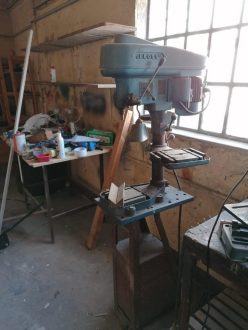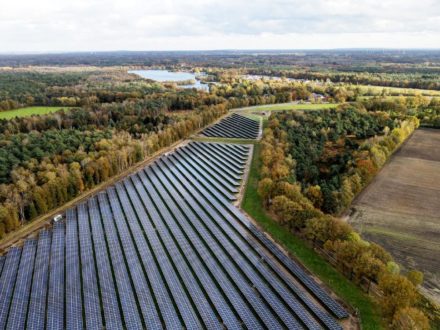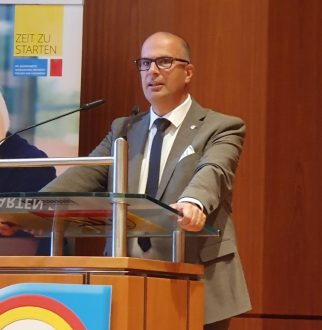DLR and E.ON collaborate on quantum computing applications
The QMPC project, for example, addresses the challenge of how to optimize the allocation of personnel and material for space missions when various framework conditions must be considered during planning. These so-called "timetable problems" are notoriously difficult to solve. And once they reach a certain size, it is not possible to optimally solve these issues with traditional computers in a reasonable amount of time, thus making the use of quantum computers necessary.
"I am excited about the collaboration with DLR on quantum computing: it demonstrates how outstanding technology can make a real difference. We are solving complex planning problems, whether in space exploration or electric vehicles, pioneering new paths and shaping the future of energy and mobility," emphasizes Victoria Ossadnik, Chief Digital and Innovation Officer at E.ON. "Climate protection and a successful energy transition can only be achieved through digital solutions – especially for complex applications. Collaborative development work with DLR shows how successful research can be advanced in fields that seemingly have no connection."
E.ON is introducing its own crucial use case into the project for further development, involving the efficient integration of electric vehicles into energy grids. Within QMPC, E.ON is developing improved planning for Vehicle-to-Grid systems in electromobility. A specific task illustrating the complexity of the calculations is, for instance: When is the best time to charge a car battery considering the minimum charge level at the end of the planning period, the total amount of sold electricity within a specific timeframe, and the physical conditions of car batteries?
Given the high degree of scaling in the Vehicle-to-Grid concept, traditional computers quickly reach their limits here too. For both use cases, models involving complex networks of states, conditions, and logical connections are simply too complex for classical methods.
Quantum computers are better suited for investigating such large models. However, their current capacity is still far from sufficient for both use cases.
Therefore, the QMPC project aims to implement quantum algorithms capable of solving larger problems. This is achieved, for example, through hybrid approaches, improved problem encoding, circuit optimization, and problem-specific adjustments to generic algorithms.
With E.ON’s additional use case, the basis for QMPC’s research is doubled, allowing for faster and more efficient advancements in the utilization of quantum computers. QMPC and E.ON are not only contributing to more efficient mission planning using quantum computers but also to the development of resilient and high-performance power grids.
About the DLR Quantum Computing Initiative (DLR QCI):
The DLR Quantum Computing Initiative (DLR QCI) engages partners from industry and business, startups, and research to jointly develop quantum computers, enabling technologies, software, applications, and the necessary economic environment. The German Federal Ministry for Economic Affairs and Climate Action (BMWK) has provided DLR with €740 million for this purpose. DLR consolidates expertise, technologies, and infrastructures at two innovation centers in Hamburg and Ulm, creating the industrial basis and economic environment for quantum computers in Germany: the quantum computing ecosystem.
This press release may contain forward-looking statements based on current assumptions and forecasts made by E.ON Group Management and other information currently available to E.ON. Various known and unknown risks, uncertainties, and other factors could lead to material differences between the actual future results, financial situation, development or performance of the company and the estimates given here. E.ON SE does not intend, and does not assume any liability whatsoever, to update these forward-looking statements or to align them to future events or developments.
E.ON SE
E.ON-Platz 1
40479 Düsseldorf
Telefon: +49 (201) 18400
Telefax: +49 (211) 4579515
http://www.eon.com/
![]()



